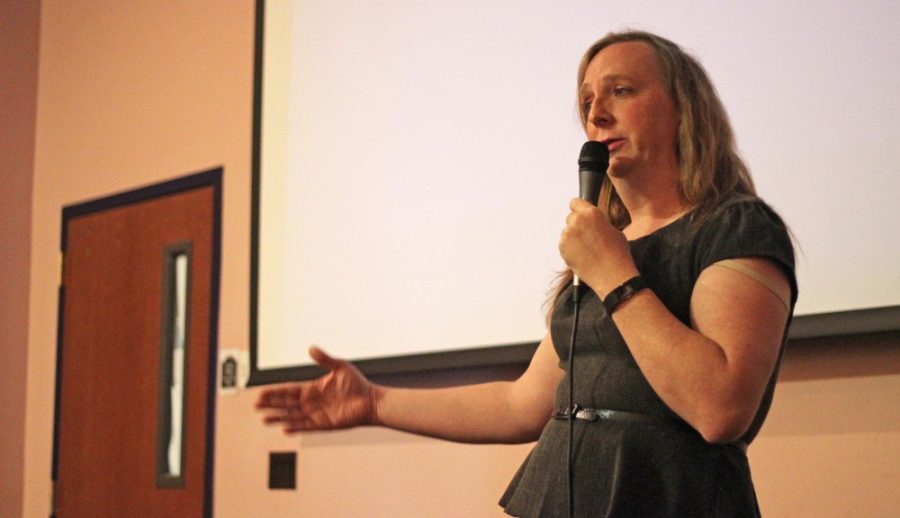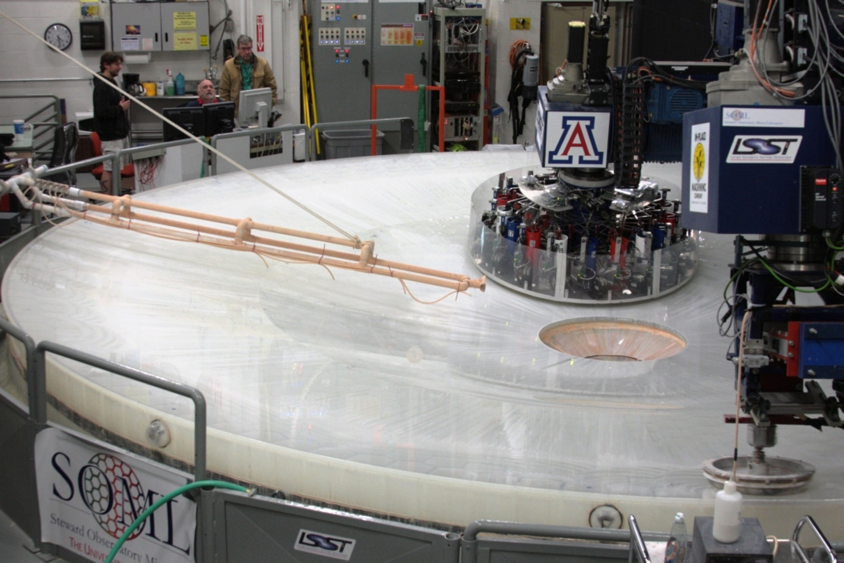The Southern Arizona Gender Alliance, hosted an event to familiarize attendees with the transgender community of Tucson and struggles they face.
The Transgender 101 event on Feb. 18 opened with statistics about the injustices faced by the transgender community, followed by personal stories about the lives of transgender individuals.
RELATED: WRC and FORCE hold panel to celebrate women in Tucson environmental and social justice leadership
Andrea Carmichael, a first-time guest speaker for SAGA, spoke about realizing her identity late in life. Carmichael was born into a conservative Christian home where the word “transgender” was only used in the context of sin.
“A theme in my story is overcoming shame,” Carmichael said.
Years passed with Carmichael lacking outlets to explore her gender identity. She met a woman, got married and had two children. Carmichael then became an overseas Christian missionary.
“I did my best to live a normal, cisgendered life,” Carmichael said.
After moving to Arizona, Carmichael began soul searching and seeing a therapist. In this time she struggled with the idea of telling her wife for fear of breaking her marriage.
“It’s hard because I didn’t want it to end, but had a choice of: Do I be true to myself and risk ending a marriage that’s nearly 25 years old, or do I try to go back in a closet and suppress it.”
armichael eventually told her wife on a weekend trip to California, and their marriage dissolved that same weekend. Shortly after, the Christian organization that employed Carmichael became aware of her transition and pushed her out of her job. She has now gained new employment as a fully out transgender individual.
Tucson is home to a strong transgender community and a growing number of organizations that work to support disenfranchised communities.
“I’ve met so much acceptance and that’s what I love about Tucson,” Carmichael said. “I know it’s not a perfect city and not everybody is wonderful, but this is a city where I can live freely as who I am.”
Diana Thacker, a regular presenter for SAGA, also shared her story at the event. Thacker was born in the South, which she explained “set the tone for being different.”
As a teenager, Thacker joined the military to get out of the town she grew up in and ended up in Oklahoma City. It was here Thacker met her wife and later opened up to her about an interest in crossdressing. Thacker’s wife was extraordinarily accepting of the idea.
Thacker continued to crossdress for years without identifying as a transgender individual. The realization she was transgender came years later through therapy and self-reflection.
“I don’t know if you know about crossdressers, but they don’t crossdress full-time for three years,” Thacker said.
Thacker’s wife remained by her side, accepting her transition fully. The company Thacker worked for never questioned her decision, and Thacker was later promoted to a manager position.
“I’ve got the good story,” Thacker said.
RELATED: New scholarship program sending Pasqua Yaqui girls to Space Camp
Transgender individuals still face increased levels of violence and disadvantages in the workplace. In 2016, 23 transgender individuals were murdered in the United States. Abby Jensen, the vice president and general counsel for SAGA, recognized this as the highest number ever recorded. Additionally, the transgender community faces higher levels of unemployment and underemployment.
“We all have to give up the right to decide who someone else is,” Jensen said. “If you are not sure, ask.”
Jensen hopes to change societal perspective by educating others and getting them to ask questions about the transgender community.
“It’s not a choice, it’s a recognition of who you are,” Jensen said. “You knew it too, it’s just that no one told you that you were wrong.”
Follow Kelly Dorney on Twitter.









